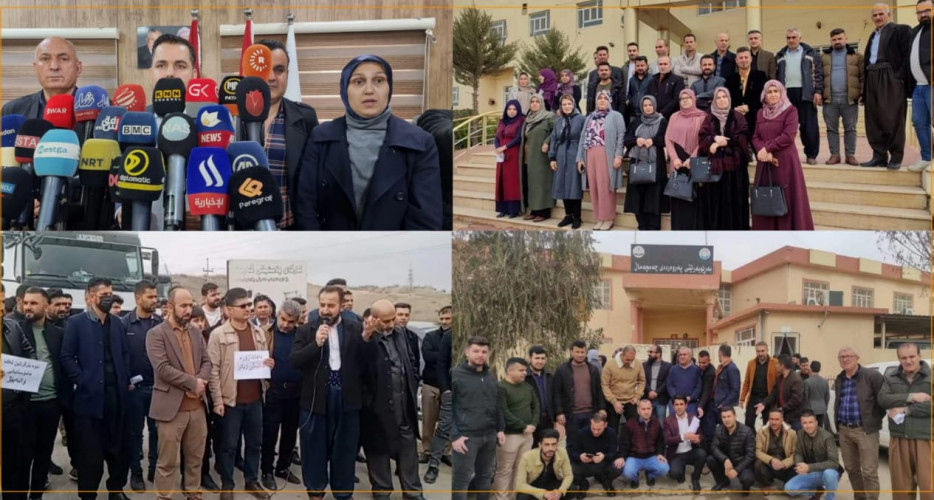Teachers, public sector workers strike in Sulaimaniyah and Halabja over salary delays

PEREGRAF
Teachers and public sector workers went on strike on Sunday (March 6) across Sulaimaniyah and Halabja governorates and inthe Garmian and Raparin administrations over salary delays, with more ready to join unless paid in the coming days.
Among those already on strike include workers at the Sulaimaniyah municipality offices, the governorate’s electricitydirectorate, Sulaimaniyah Polytechnic University, and public primary and secondary schools.
In Halabja, teachers, municipal and provincial council staff, and workers at the agriculture and culture directorates staged protests and strikes, while teachers also walked off the job in the Garmian and Raparin administrations.
Unless resolved soon, the situation seems poised to escalate.
The Sulaimaniyah Health Workers' Syndicate said its memberswould go on strike if they are not paid in the next four days. Its representatives warned the government with the slogan: "Good salaries equal good work and bad salaries equal bad work"
While late salary payments are the proximate cause of the latest unrest in this part of the Kurdistan Region, which is controlled by the Patriotic Union of Kurdistan (PUK), the striking workers also pointed to larger problems.
"The health directorate in Sulaimaniyah needs 27,000 employees, but now 13,400 permanent employees remain, half the necessary number," a Syndicate representative said at a press conference, noting that health workers have not been paid for the last 41 days.
"Since August 2021, no money has been spent on medicine companies and medical needs," they continued. “Gas and gasoline are borrowed for generators and official cars. The money for the clean-up companies and food is all borrowed."
"If it continues like this, there will be no medicine, supplies, and surgeries at hospitals," the representative said.
Sunday’s protests follow closely on strikes by the workers at cleaning companies, which resulted in garbage piling up across Sulaimaniyah city.
In general, public services like electricity and water are unreliable and do not serve all areas. In recent months, residents have had to queue in long lines for cooking gas, despite the proximity of the Khor Mor gas field. Supplies of heating oil during winter have been insufficient for years.
Many critics blame the Kurdistan Regional Government (KRG) for the financial problems in Sulaimaniyah and Halabja and have called for increased local powers, but they also accuse the PUK of political and economic mismanagement.